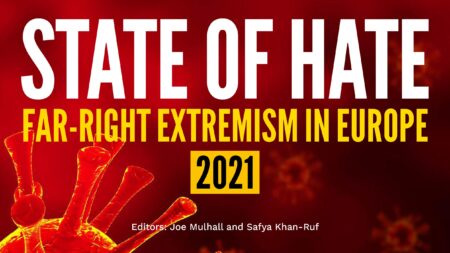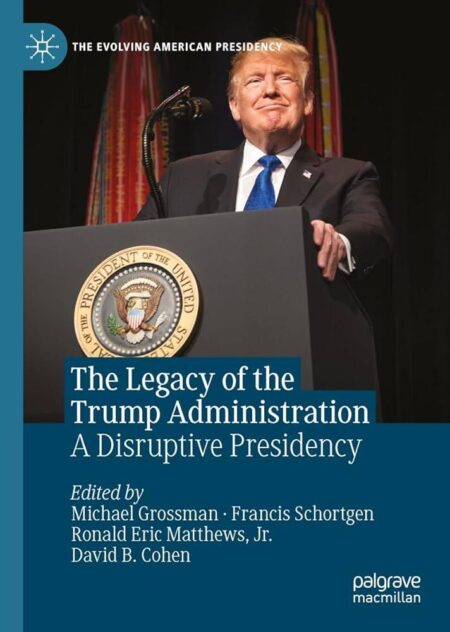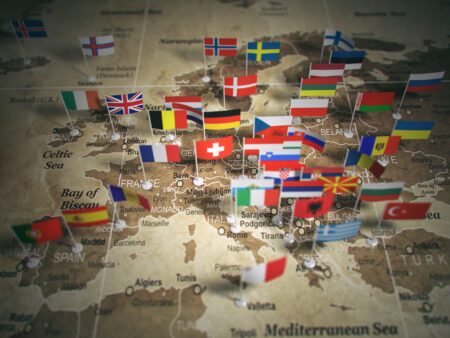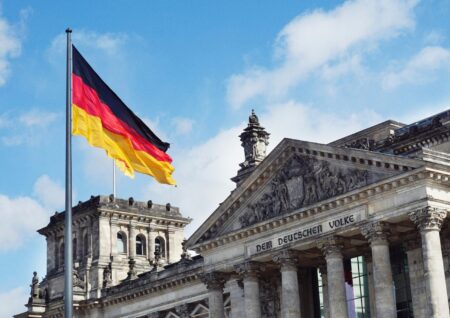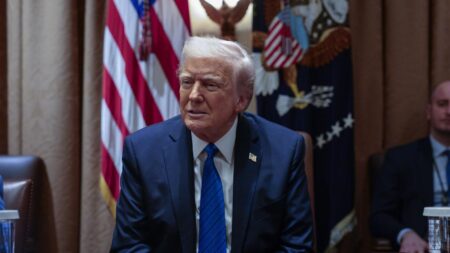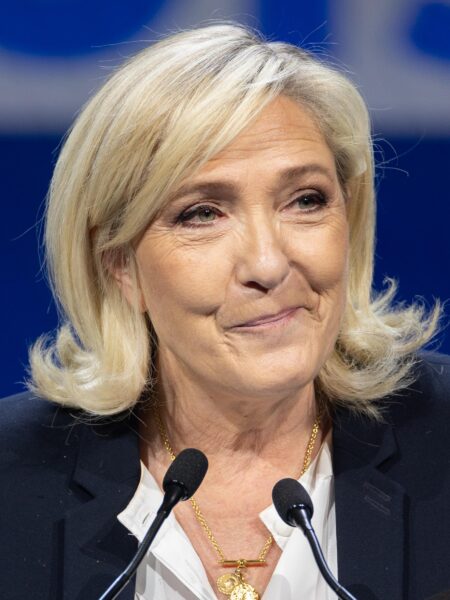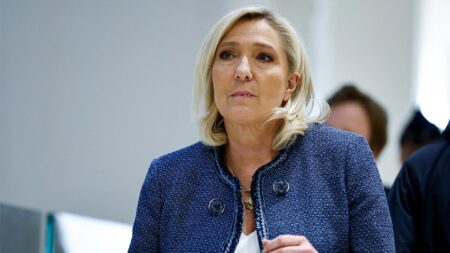The U.K., Canada, and other allies have made a powerful statement by imposing sanctions on far-right Israeli ministers, spotlighting deep concerns over policies that risk undermining peace efforts. This bold move marks a rare and unified response to the dramatic political shifts taking place in Israel
Browsing: far-right
The U.K., Canada, and several allies have made a powerful move by imposing sanctions on far-right Israeli ministers, signaling deep concern over policies that could destabilize the region, the Wall Street Journal reports
Europe’s far-right forces converged with renewed vigor in rural France this weekend, rallying passionately behind Marine Le Pen. This electrifying display of support underscored her rising influence as the party prepares to strengthen its base ahead of the pivotal upcoming elections
The Trump administration has shaken up German politics by openly backing the far-right AfD party, igniting fierce debate and fueling worries about foreign interference in Germany’s democracy, NBC News reports
In a remarkable triumph for far-right President Javier Milei, Argentines have sent a clear message to centrist parties in the recent local elections. This outcome not only strengthens Milei’s grip on power but also highlights the rising enthusiasm for his bold economic policies and distinctive approach to governance.
Germany has taken a bold stand by banning a far-right group linked to the extremist Reich Citizens movement, highlighting serious concerns for democracy and public safety. This decisive action reflects the government’s unwavering dedication to fighting against extremist ideologies that threaten the fabric of society
As Brazil’s far-right navigates a turbulent landscape marked by internal rifts and recent electoral setbacks, a pressing question arises: Who will step up to fill the void left by Jair Bolsonaro? With political tensions escalating, this movement stands at a pivotal crossroads as it prepares for the high-stakes 2024 elections.
Germany’s domestic intelligence agency has officially designated the Alternative for Germany (AfD) party as a “confirmed rightwing extremist” group. This significant classification underscores escalating worries about the party’s sway and the increasing tide of extremist sentiments sweeping across the nation
Germany’s recent decision to label the far-right Alternative for Germany (AfD) party as an “extremist” group has ignited a wave of criticism from the United States. Detractors contend that this classification threatens the very essence of democratic dialogue, fueling fears of political repression and stifling diverse viewpoints
In a bold political move, Germany’s government has officially branded far-right factions as ‘extremists,’ sparking fierce backlash from MAGA supporters. This classification underscores escalating worries about the surge of nationalism and its potential impact on global democracy.
Germany’s far-right AfD party is under the spotlight as lawmakers engage in heated discussions about a possible ban. With worries mounting over its extremist rhetoric and growing influence, the government is considering legal measures that could dramatically alter the political landscape.
Italy’s Giorgia Meloni exemplifies the challenges of moderating Europe’s far-right movements. Despite attempts to present a more palatable image, her government’s actions reveal the enduring appeal of nationalist rhetoric, threatening EU cohesion.
In a significant shift in German politics, the far-right Alternative for Germany (AfD) has topped the polls for the first time, posing a challenge to Chancellor-in-waiting Friedrich Merz. This development signals rising support for nationalist sentiments amid national debates.
In a strategic move ahead of the upcoming elections, Marine Le Pen is intensifying her rhetoric, aiming to leverage social divisions in France. Analysts warn that her approach may deepen societal rifts as she seeks to consolidate power for her party.
Former U.S. President Donald Trump has publicly endorsed France’s far-right leader Marine Le Pen following her recent conviction in a defamation case. This support underscores Trump’s continued alignment with nationalist movements in Europe as they seek electoral success.
The recent court verdict against Marine Le Pen has sparked outrage among far-right factions in France and beyond. Supporters claim the ruling exemplifies political bias, while critics view it as a critical step towards accountability for populist leaders.
France’s far-right leader Marine Le Pen faces significant legal challenges that could impact her political future. These issues include previous convictions and ongoing investigations, raising questions about her eligibility in upcoming elections.
Marine Le Pen’s recent ban from public office has intensified divisions within French society. Supporters view it as a crucial step against extremism, while opponents argue it undermines democratic discourse, deepening the nation’s political rift.
France’s Marine Le Pen has been barred from holding public office for five years following a conviction for embezzlement. The ruling underscores the ongoing scrutiny of political figures amidst allegations of financial misconduct, as reported by CNBC.
In a bold response to her recent barring from office, Marine Le Pen remains defiant, asserting that her political ambitions are undeterred. The ruling has sparked significant debate about political freedoms and the implications for France’s far-right movement.



